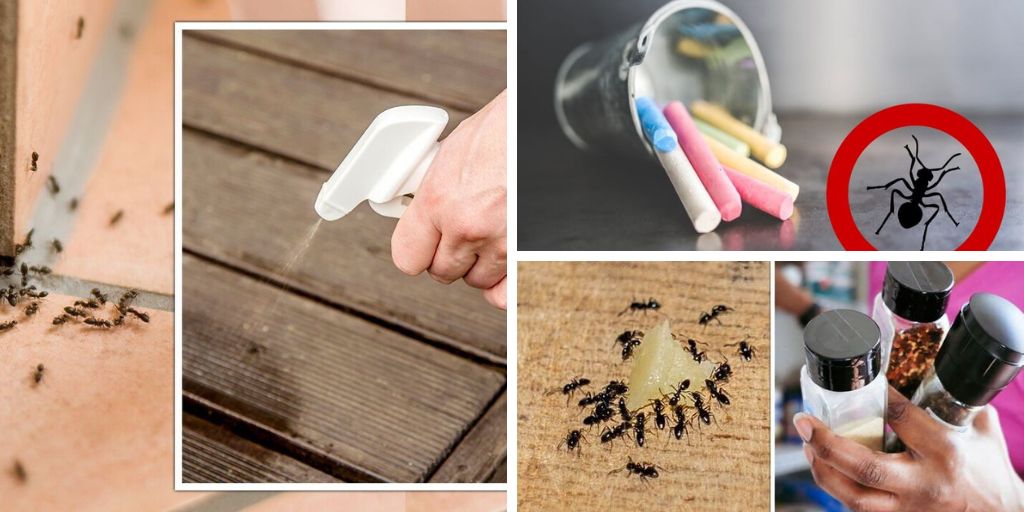Walking into your kitchen to find that your house has been ransacked is one of the worst things that can happen to you in the morning.
Small insects like this are one of life’s greatest annoyances, and getting rid of them may be a major hassle.
Unfortunately, even the most potent chemical ant-killers are often ineffectual in the fight against ants, making it all the more difficult to locate a natural alternative.
No need to be alarmed! It is our goal at Gardener-know-how to provide you with a list of 10 natural home treatments that we have found to be helpful in eliminating these pesky insects without the use of dangerous chemical ant killers.
Baking Soda
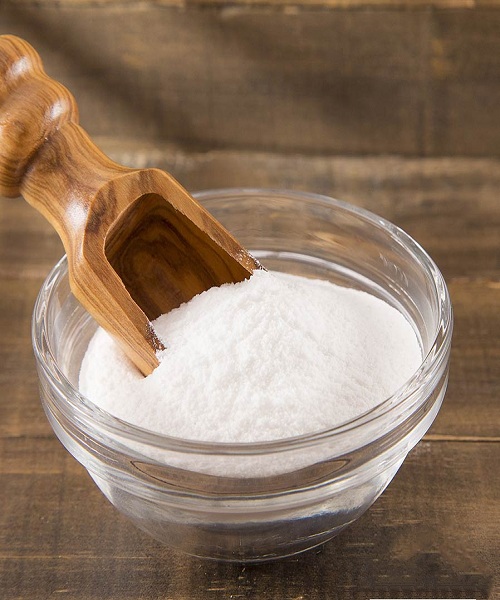
Our favorite natural household product is baking soda since it can solve so many of life’s little annoyances with just a little bit of baking soda.
The natural chemistry of ants is thrown off by baking soda, which is beneficial to humans. Mix equal amounts of baking soda and powdered sugar to make your own ant bait that is safe for pets and the environment.
To draw marching insects to your homemade bait, pour the liquid into a shallow container (a plastic or metal top works excellent). The ants will carry it back to their colony, eat it, and quickly decrease in number, saving your pantry and your sanity!
You may also strategically place this natural ant bait on window sills and in the corners of your pantry and cupboards where food is stored in order to deter future incursions.
Borax
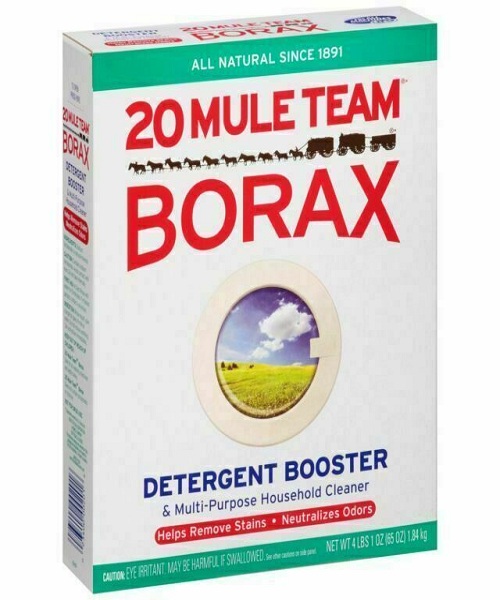
Baking soda and borax are interchangeable. To form a paste, combine this traditional household detergent with water, sugar, and peanut butter.
Place your DIY ant trap near ants or other spots that may be of interest to these troublesome insects by punching a few holes in a plastic container, filling it with your borax mixture, and then sealing the lid.
Borax is harmful to animals other than ants, so keep that in mind while using it. If you’re going to use peanut butter in your traps, be sure to keep them out of the reach of pets and other small animals.
Chalk

An ant will never cross a chalk line. Despite the fact that this may sound ridiculous, it’s true.
An ant’s ability to communicate with the rest of its colony depends on its ability to leave behind pheromone trails, which are scent markers.
As a result, you can keep ants from getting to their intended food source (such as your pantry, cupboards, kitchen trash, etc.) by drawing or pouring a line of chalk powder between the ants’ access points and that line.
Soap & Water
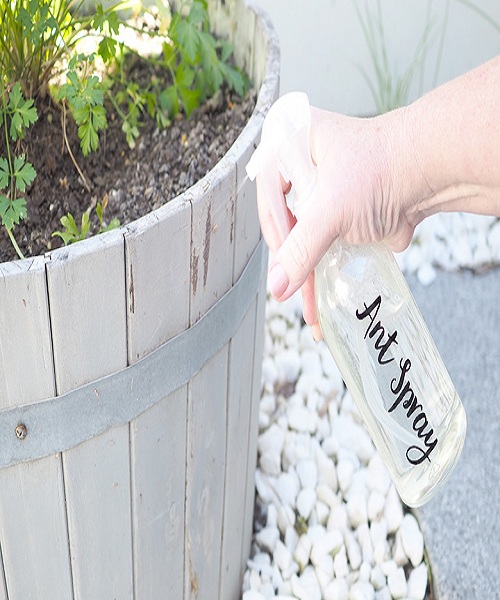
A simple solution of soap and water will get rid of the existing ants in your home and keep their brethren at bay long enough for you to mix up a more long-term treatment.
Just pour a generous amount of liquid dish detergent to a spray bottle of warm water, shake, and spray.
In addition to suffocating the ants, the soap will wash away their scent trail, preventing the colony as a whole from discovering whatever tasty treat the ants were previously led to.
Vinegar

One of our favorite and most useful natural household goods, vinegar, is also a natural ant deterrent.
In the same way that chalk erases the ants’ pheromone trails, vinegar does the same. Spraying vinegar and water around a group of marching ants let you see this phenomenon in action.
As soon as the ants are separated from their smell trails, the line will break up and the insects will begin to wander aimlessly around, completely lost.
Ants dislike the scent of vinegar because it interferes with their pheromones, which they use to communicate with each other. Keep ants out of your home by spraying around doors, windows, and other entry points.
The combination will, of course, evaporate over time and must be reapplied regularly in order to be successful. But if you like the fragrance of vinegar, this is a terrific natural and completely non-toxic solution to the problem of ants.
(Suggestion: To enhance the spray’s anti-ant repellant effects, mix in a few drops of aromatic oils with the vinegar.)
Lemon

Despite the fact that vinegar and water appear to be more effective, lemon juice and essential oil work just as well to keep ants away, and they smell much better (provided you don’t like vinegar’s stench).
Use a spray bottle filled with water and a few tablespoons of lemon juice or roughly ten drops of lemon essential oil to liberally treat ant infestations. The scent of the lemon will confuse the ants and lead them to flee.
However, as soon as the lemon aroma wears off, the ants will begin searching for the source of their attraction once again. If you don’t know what they’re looking for, you may have to reapply frequently until you do.
The juice from a lemon can be used to stop ants from entering your home if you don’t already have one. Simply cut the lemon in half and rub it about any potential access points.
Peppermint Oil Spray
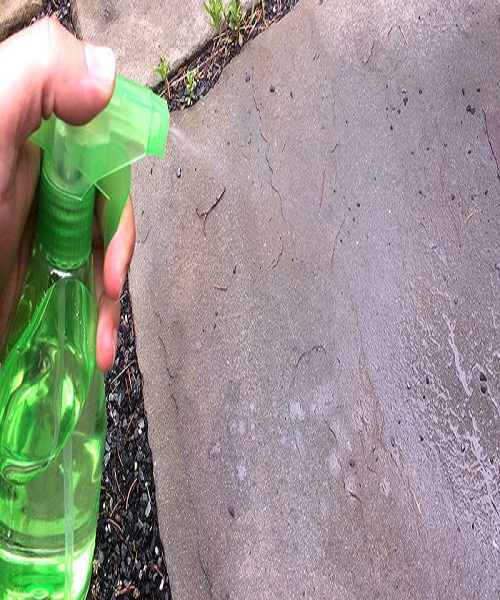
Peppermint has a noxious effect on ants’ capacity to communicate via pheromone marks, which is why they loathe it.
One method of utilizing the popular herb peppermint to keep ants (and other pests) away is to plant peppermint around your home. However, you can also make a water-and-peppermint essential oil solution and spray it on window sills and door frames or directly onto marching ant lines to get rid of these pests.
The minty aroma will fill the air in your home at the same time! A win-win situation is possible!
Fresh Garlic
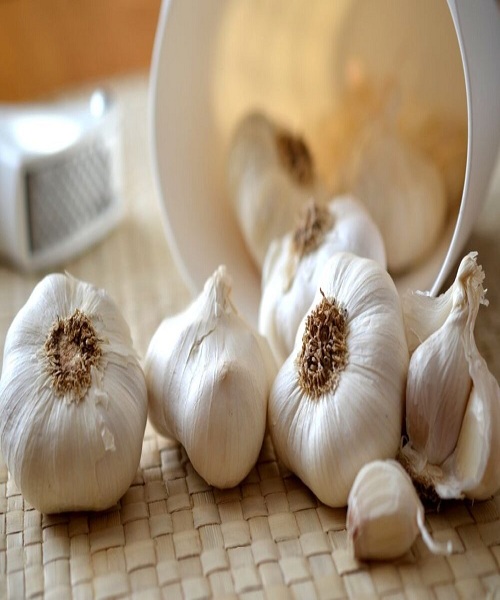
Garlic is one of the most amazing natural foods there is. It’s a good idea to eat a little bit of this wacky plant every day. Additionally, ants and other pesky insects are kept at bay by this method.
Peel a few cloves of fresh garlic and lay them near the ants to dissuade them from coming near in the first place. A force field of garlic’s fragrance aura can be seen bouncing the insects off of each clove and causing them to flee!
If the ants return, you may have to replace the dried-out garlic cloves with fresh ones because they will lose their effectiveness as time passes.
Diatomaceous Earth
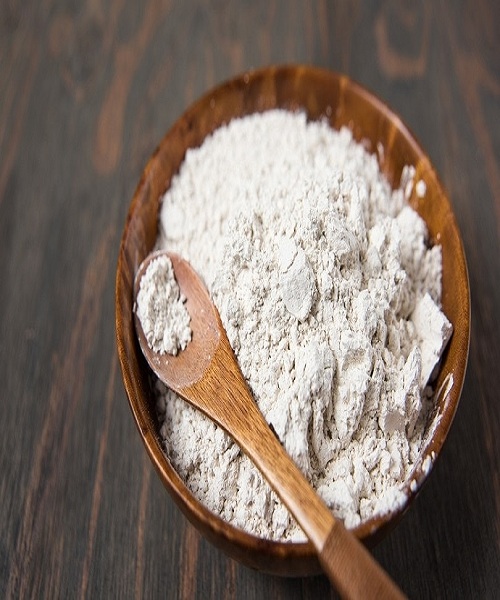
Diatomaceous earth, commonly referred to as DE, is really the fossilized remnants of aquatic microorganisms known as phytoplankton, a type of phytoplankton.
Insect pests like ants will die if they come into contact with DE, which is completely safe for larger animals. Due to its sharpness, diatomaceous earth (DE) penetrates insects’ joints when it comes into touch with their waxy exoskeleton.
Dehydration and death occur as the insect’s exoskeleton is punctured by the DE as they move about.
People and pets are safe from diatomaceous earth (unless they have an exoskeleton), therefore you can use it to keep ants out of your house by spreading DE where they are likely to enter.
Aspartame

Now that we know that aspartame (also known as Nutrasweet or Equal) isn’t exactly a natural product, we’re not going to recommend that you consume it.
Aspartame, on the other hand, can be found just about anywhere. If you’re dealing with a tenacious fire ant colony, it’s also one of the few options available.
In other words, if you’ve tried everything else and nothing works, don’t grab for the enormously poisonous chemical fire ant killer just yet. Instead, the next time you’re out, pick up a handful of those infamous “blue packets.”
Take one packet of sugar and sprinkle it around a fire ant mound’s entrance, spritz it with a little water, and watch the ants go wild as they try to get their hands on the sweet treat.
Ants will take the aspartame, divide it with the rest of the colony, and then inexplicably vanish within a few days—sweet retribution for all the times they bit you… Literally.
Using aspartame, a neurotoxin, the ants’ senses, including their ability to find food and communicate that information to other ants, are impaired. They also lose the ability to recognize themselves as members of their own colony.
This means that in the event that an ant is mistaken for an intruder and murdered by other aspartame-addicted ants in their own mound, they will quickly starve to death.
Remember that the natural ant deterrents on our list may work for certain ants, but they won’t work for all ants. So, don’t give up if one approach doesn’t work. If your little house invaders don’t like one, try another till you do.

